2019 NABP District 6, 7 & 8 Meeting
Idaho State Board of Pharmacy and
Idaho State University Kasiska Division of Health Sciences
If you have questions regarding this continuing education program, please call the Office of Continuing Education at 208.282.2280.
REGISTRATION
All participants must register online and take a pre-test at the time of registration.
Register
POST-TEST AND EVALUATIONS
The post-test and evaluations will be available on Tuesday at the conclusion of the meeting. To receive credit, please complete within 1 week of the program.
A $50 late fee will apply if not received by October 16, 2019.
Post-Test and Evaluations
SPEAKERS
Conflict of Interest: The planners and presenters of this CE event have disclosed no conflict of interest, including no relevant financial relationships with any commercial interests pertaining to these CE activities.
Can We Make Medicine More Permissionless?
 |
Adam ThiererMercatus Center, Senior Research Fellow |
|---|
This presentation will explore the concept of permissionless innovation and how it may interface with the profession of pharmacy regulation.
Learning objectives
- Describe a method used to regulate the advancement of technology
- Define precautionary principle
- Discuss factors that allow pharmacy to safely advance under Permissionless Innovation
Credits: ACPE (1.00)
Achieving a Full Pharmacist Scope of Practice
 |
Ross T. Tsuyuki, BSc(Pharm), PharmD, MSc, FCSHP, FACC, FCAHSProfessor and Chair, Department of Pharmacology Faculty of Medicine and Dentistry University of Alberta |
|---|
This presentation will discuss the concept and evidence for full scope of practice for pharmacists.
Learning objectives
- Outline the components of a full scope of pharmacy practice
- Describe the evidence for a full scope of pharmacy practice
- Discuss solutions for moving towards a full scope of pharmacy practice
Credits: ACPE (1.00)
Lessons from Nursing: Closing the Gap in Can vs. May
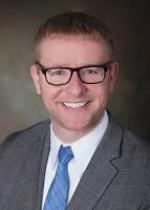 |
Alex Adams, PharmD, MPHAdministrator, Division Financial Management |
|---|
This presentation will explore the nursing profession's successful use of standard of care as a regulatory strategy.
Learning objectives
- Differentiate “scope of practice” from “clinical ability”
- Describe three models of regulating scope of practice: Lowest common denominator, tiered licensure, standard of care
- Describe Idaho’s transition to “standard of care” regulation for nursing vs. pharmacy profession
Credits: ACPE (0.75)
The Great Debate: Is a “Standard of Care” Model the Right Approach to Achieve “Full” Scope of Practice and Close the Gap Between Can and May?
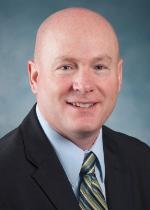 |
Tim Lynch, PharmD, MSBoard Member, Washington Pharmacy Quality Assurance Commission |
 |
Stuart T. Williams, Attorney at LawBoard Member, Minnesota Board of Pharmacy, Board Member, Minnesota Board of Medicine |
 |
Julie Akers, PharmD, BCACPClinical Associate Professor, Department of Pharmacotherapy, Washington State University College of Pharmacy and Pharmaceutical Sciences |
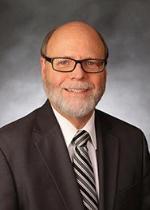 |
Walter L. Fitzgerald, Jr. BPharm, MS, JDDean and Professor, Idaho State University College of Pharmacy |
This panel discussion will explore the intersection of standard of care and scope of practice that allow pharmacists to practice at the top of their education while maintaining safety and protection of the public health.
Learning objectives
- Discuss the risks and benefits of regulating pharmacy clinical services similarly to other healthcare professions
- Describe the factors involved in determining a states' scope of pharmacy practice
- Explain how the public health protection is retained under a standard of care model of regulation
Credits: ACPE (1.00)
Perspective from Nursing: the Nurse Licensure Compact (NLC)
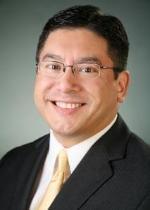 |
Jim Puente, MS, MJ, CAEDirector, Nurse Licensure Compact |
|---|
This presentation will explain how the Nurse Licensure Compact works in the areas of licensure and discipline, the impact joining the compact has on a state, and myths associated with compact participation.
Learning objectives
- Identify licensure models that enable cross-border practice and streamline licensure processes
- Argue the benefits of the mutual recognition model of licensure
- Discuss limitations of the current single state model of licensure
Credits: ACPE (1.00)
Pharmacists as Independent Prescribers: Initial Considerations from Idaho State University
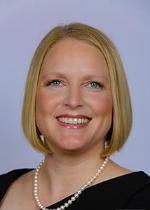 |
Jennifer L. Adams, PharmD, EdD, FAPhAAssociate Dean for Academic Affairs, Director of Interprofessional Education, Clinical Associate Professor, Idaho State University College of Pharmacy |
 |
Michael A. Biddle, Jr., Pharm.D., BCPSClinical Assistant Professor of Pharmacy Practice, Idaho State University College of Pharmacy |
This presentation will address new opportunities, evidence, and resources for pharmacist independent prescribing in community settings, how to incorporate pharmacist prescriptive authority within pharmacy curricula and how Boards and Colleges of Pharmacy can collaborate in these efforts.
Learning objectives
- Discuss opportunities and barriers to pharmacists' independent prescribing in a community setting
- Describe the role of a college/school of pharmacy in supporting boards of pharmacy and future and current pharmacists with progressive, independent prescribing practices
- Using the example of Idaho independent prescribing laws, describe curricular strategies for training students for independent prescribing in the community setting
Credits: ACPE (1.00)


